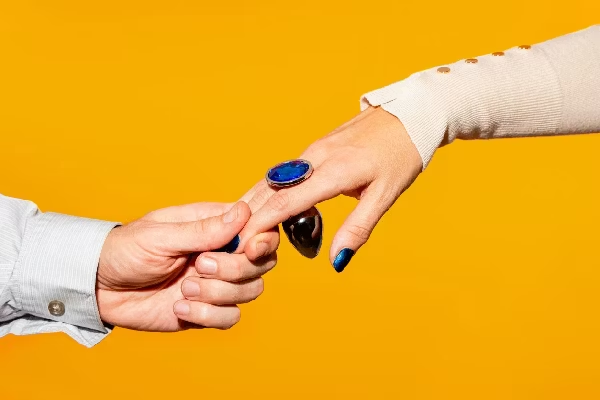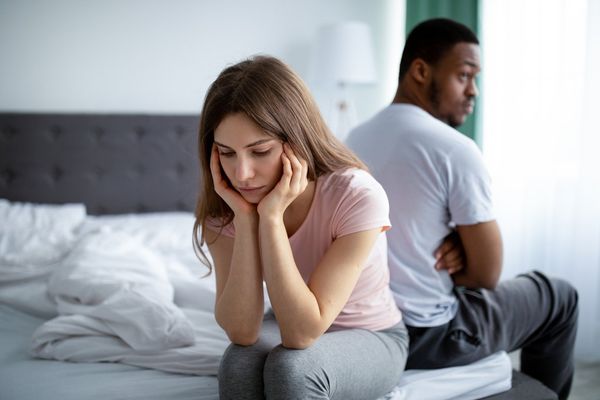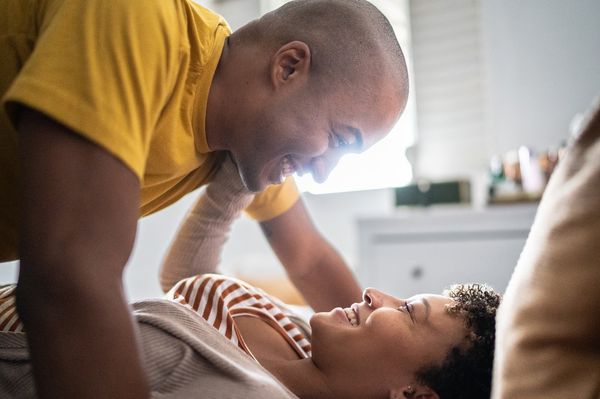I recently spoke with Dr. Emily Jamea, a certified sex therapist, the president and clinical director of REVIVE, and a member of HealthyWomen's Women's Health Advisory Council, about how to maintain sexual health.
This is the first installment of a two-part series. The transcript has been edited for clarity and length.
HealthyWomen: What happens to a woman's sexuality in middle age?
Dr. Emily Jamea: During the shift to and after menopause, there are several hormonal changes, but the primary hormonal change that affects the vagina is a drop in estrogen, which is responsible for keeping the vagina elastic and lubricated. So what can happen over the long run, if you're not sexually active, is that it can atrophy since that hormone is so important in keeping the vagina elastic.
When the vagina atrophies, it can happen to varying degrees. For some women, it can simply just make sex kind of uncomfortable and painful, and they'll have to use a lubricant. (I tell women at any age, but especially postmenopausal women, to become friends with lube.)
For other women, it can actually create a kind of a shortening of the vaginal canal, so if there's a long period of time that you haven't been sexually active and then try to have intercourse, that can create discomfort. Then, it can evolve into a neurofeedback loop. Because you expect sex to be painful, you might have increased muscle tension. And when the pelvic floor muscles tense, that can make sex painful as well. Now you've got vaginal dryness, shortening of the vagina, tense muscles — and it doesn't make for a very pleasant sexual experience.
That's sort of on the extreme end, but there are a lot of things that women can do to help combat those symptoms and maintain a very healthy vagina.
HealthyWomen: What's the biggest misconception about women and sex in middle age?
Dr. Emily Jamea: Hands down, the biggest misconception is that sexual desire drops and [middle-aged women] are not going to want to have sex. Because, when we take a good look at the research, we can't blame our hormonal changes for our desire to have sex as much as we'd like to.
Sexual desire, particularly for women, is a very complex phenomenon, and hormones make up a very small piece of the pie. Because of all of the changes that are happening during menopause, you might not feel very much like yourself, so it has a secondary effect, but the effect of the hormone changes on desire are a little more indirect.
Usually the desire to have sex for women is accompanied by the feeling of sexual arousal. We used to use a linear model for understanding how sexual desire works: first you have desire, then you become aroused, then maybe you have an orgasm — then the whole thing starts over.
Now we know that's not how a lot of people, and especially women, operate. In 2001, we got a new, more circular model. For women, desire and arousal go hand in hand, so a lot of women won't really feel the desire to have sex unless there's a little bit of sexual arousal.
Hormones can muddy that a little bit. There's emotional arousal and physical arousal; for women, part of physical arousal is lubrication and we talked about how that isn't happening as easily anymore. So you have a piece of that desire/arousal process that doesn't feel like it's happening as automatically.
HealthyWomen: Should middle-aged women who aren't sexually active use a vibrator to maintain the vaginal muscles and prevent vaginal atropy?
Dr. Emily Jamea: Partially, yes, people can use all kinds of vibrators in all different ways. The best thing a woman can do if she's postmenopausal and not sexually active is use a vaginal dilator.
They graduate in size, so they start off pretty small, like the size of your pinky finger and then gradually become larger and larger. Someone would need to start with the small one if they had vaginal atrophy and were just starting to heal the vagina.
They don't vibrate; you put lube on them and then put them inside your vagina and you can just hold them there for a little while. You could even try some kegels or move it around a little. That keeps that muscle memory active (they need to stretch out when something's inside) and reminds the pelvic floor muscles that they need to relax.
For women who want to use a vibrator, I recommend getting a slim vibrating wand for inside the vagina. You can rotate it clockwise and counterclockwise so that you're hitting those pelvic floor muscles. You don't have to go super deep, but it helps draw blood flow and oxygen to the tissue, which keeps it healthy.
HealthyWomen: Can you elaborate on the need to do kegel exercises?
Dr. Emily Jamea: A lot of women don't realize that the pelvic floor muscles can weaken, and they're such an important but often neglected muscle group. They hold up all of our pelvic organs; they're like a hammock between our pelvic bones, so it's essential for women of every age to do their kegel exercise to keep those muscles strong and healthy. For the average woman, three sets of ten, three times a week is sufficient.
In the second part of our two-part series, Dr. Jamea discusses how we can maintain our sexual health and why we're never too old for sex. Follow Dr. Emily Jamea on Instagram @dremilyjamea.
- Ignorance Isn’t Bliss When It Comes to Sex in Menopause ›
- How to Have the Best Sex of Your Life After Menopause ›
- Can Women Improve Our Sexual Health at Midlife? ›
- How to Rekindle Your Sexual Connection at Midlife ›
- Sex at Midlife ›
- No, You're Never Too Old for Sex - HealthyWomen ›







